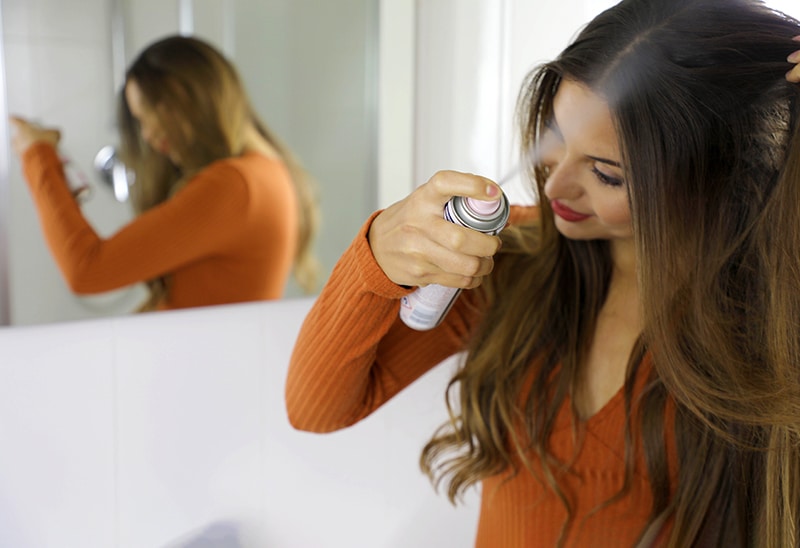Let’s be honest: COVID-19 has a lot of us prioritizing convenience over vanity. If you’re not leaving the house, sometimes that daily shower can feel optional. So, it’s no wonder more of us are looking at dry shampoo as an easy alternative to washing our hair. A quick online search will pull up thousands of results claiming dry shampoo causes hair loss or damage, while an equal number of results promise there’s nothing to worry about. What’s the truth?
What dry shampoo does to your hair
The term “dry shampoo” is somewhat misleading, as the product doesn’t actually shampoo your hair. Instead, it uses alcohol and/or starch to absorb oil.
“Dry shampoos essentially absorb excess oils and sebum from the scalp, which can assist in hair styling and reduce the greasy appearance of the scalp to provide increased volume and a fresh appearance,” says Angie Koriakos, DO, a dermatologist on the medical staff at Methodist Richardson Medical Center.
This can be helpful for the occasional freshening-up, but the alcohol in dry shampoos can dry out your hair. That can lead to frizz and make your hair more prone to breakage.
Temporary fix
Don’t get used to the quick convenience of the product because it only buys your hair time. Using too much dry shampoo can cause product build-up on your scalp, clogging your hair follicles. When combined with infrequent hair-washing, that buildup can lead to dandruff and an itchy scalp, as well as irritated, scaly skin.
“Dry shampoo should not be used in patients with scalp disorders or infections,” Dr. Koriakos warns. “Using this product too frequently, without proper washing on a regular basis, can lead to conditions such as seborrheic dermatitis or folliculitis of the scalp.”
Everything in moderation
If you’ve heard that dry shampoo could cause hair loss, the answer is yes — sort of.
An unhealthy scalp and hair breakage can lead to bald spots, and your hair growth can slow. When used several times a week, the ingredients in dry shampoo can build-up and weaken the follicle, and may cause inflammation, which can also increase hair shedding. The other downside of the product is that the powders they contain can cause hair follicles to stick together, so when a normal hair sheds, it may take a few extra strands with it.
To keep your hair healthy, Dr. Koriakos recommends using dry shampoo sparingly — no more than once or twice a week. Ultimately, she says, dry shampoo isn’t the enemy of the scalp.
“Overall, dry shampoos can be beneficial for use when liquid shampoos are unavailable or to decrease frequency between washes,” Dr. Koriakos says. “It should only be used in conjunction with regular hair washing to maintain a healthy scalp.”
In addition to limiting your dry shampoo usage, here are some other tips for happy, healthy hair:
HEALTHY HAIR HABITS

